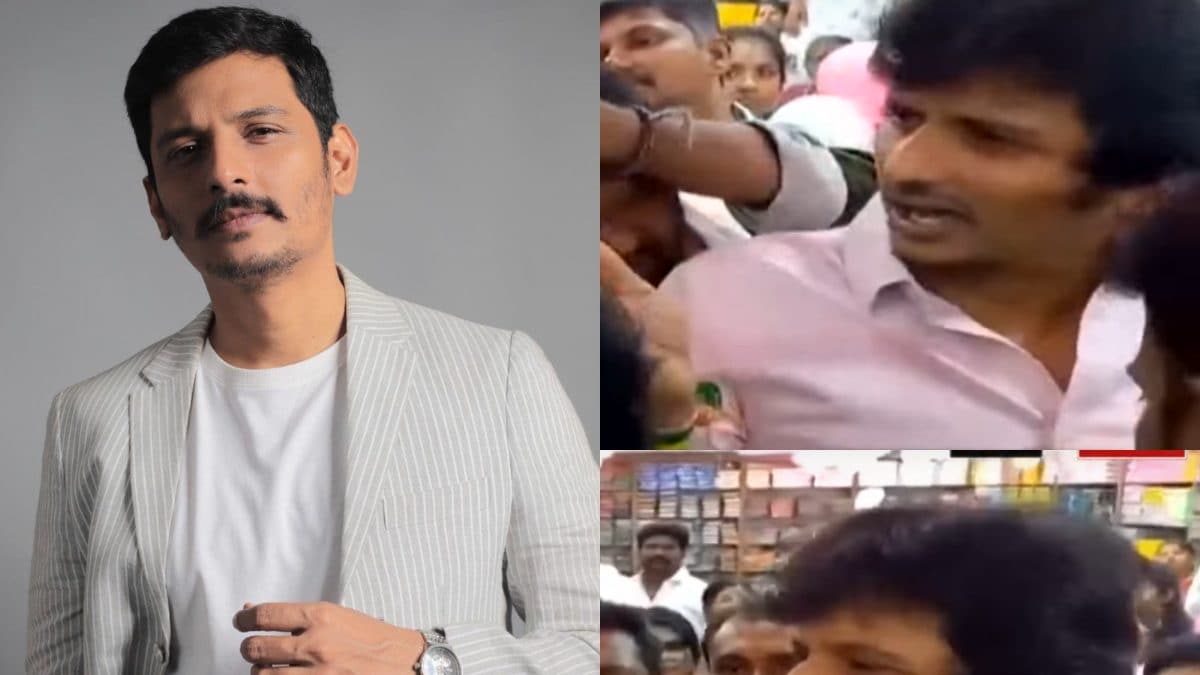Jiiva’s heated exchange with journalists regarding the #MeToo movement in Tamil film industry highlights a critical conversation surrounding sexual harassment and the power dynamics within the industry. Jiiva’s denial of the existence of sexual harassment issues, his defensive and aggressive reaction, and his dismissive attitude towards journalists’ questions expose a larger issue of dismissing concerns regarding sexual harassment.
The Dismissive Denial
Jiiva’s denial of sexual harassment within the Tamil film industry, along with his assertion that he wouldn’t keep replying to the same questions, signifies a troubling attitude towards the issue. His dismissal of the MeToo movement and his refusal to acknowledge the complexities surrounding sexual harassment showcase a lack of sensitivity and understanding. Instead of acknowledging the possibility of these issues and engaging in a constructive conversation, he resorted to aggressive rhetoric and defensive postures.
Dismissing the reality
By outright denying the existence of sexual harassment, Jiiva is essentially invalidating the experiences of potential victims. This dismissal fuels a culture of silence, making it harder for people to come forward and speak out against harassment. The MeToo movement across the world has unveiled countless stories of abuse and misconduct, and disregarding these issues only perpetuates a culture of impunity for perpetrators.
The power dynamic in play
Jiiva’s behavior towards the journalists demonstrates a disregard for the role of the media in holding individuals and institutions accountable. By refusing to engage with questions about the issue, he attempted to silence the discourse. This attempt to control the narrative further underscores the power dynamics within the film industry, where individuals in positions of authority often attempt to suppress dissenting voices and deflect critical inquiry.
The importance of acknowledging and addressing sexual harassment
Jiiva’s actions serve as a reminder of the importance of recognizing and confronting the problem of sexual harassment, especially in the entertainment industry. It’s essential for actors, filmmakers, and other industry stakeholders to acknowledge the issue, listen to the experiences of victims, and create a safer and more inclusive environment.
Moving beyond denial
Moving beyond denial requires an open and honest dialogue about sexual harassment. Film industries need to create a space where victims feel comfortable speaking up and reporting abuse without fear of repercussions. This requires fostering a culture of respect, accountability, and sensitivity, along with establishing concrete policies and mechanisms for reporting and addressing grievances.
Shifting the narrative
Instead of dismissing these concerns, individuals in positions of influence, such as actors like Jiiva, should actively support initiatives aimed at addressing sexual harassment. This can include promoting awareness campaigns, participating in dialogues, and working towards creating safer working environments for everyone involved in the film industry.
The ripple effect of Rajinikanth’s dismissiveness
Rajinikanth’s lack of knowledge about the Hema Committee Report, which has sent shockwaves through the Malayalam film industry, reveals a concerning lack of awareness and engagement within the Indian film industry as a whole. This indifference, echoed in Jiiva’s reaction, perpetuates the problem of overlooking and disregarding crucial social issues, thereby hindering progress toward a more equitable and just film industry.
Lack of accountability
The fact that a superstar like Rajinikanth appears unaware of the significant events unfolding in the film industry, highlighting serious issues of sexual harassment, speaks volumes about the existing power structures and the lack of accountability. It raises the question: how can genuine progress be made when leading figures remain disconnected from critical social concerns?
The call for leadership
Rajinikanth’s dismissive attitude towards the report underscores the need for leadership within the film industry. Actors with influence have a crucial role to play in shaping public discourse and advocating for change. Their awareness, engagement, and commitment to tackling these issues are essential to create a more just and equitable environment for all.
Take away points
- The reactions of Jiiva and Rajinikanth to the #MeToo movement in the Tamil and Malayalam film industries, respectively, reflect a larger problem of denial and dismissiveness surrounding sexual harassment within the Indian film industry.
- It’s crucial for individuals with influence to acknowledge the issue and take an active role in promoting a safer and more inclusive environment within the film industry.
- Shifting the narrative from denial to accountability requires open dialogues, the implementation of policies addressing sexual harassment, and the active involvement of industry leaders.
- The power dynamics within the film industry must be addressed, and those in positions of power must be held accountable for their actions and inaction.




